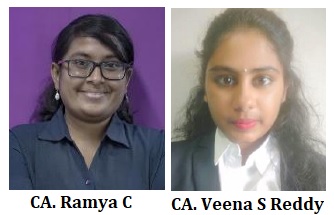A lot of Multinational Companies (MNCs) have the practice of seconding/deputing one or more of its employees to its sister companies within and outside their country. Such transactions have come under the scanner of the Department wherein demand for service tax was raised.
A recent judgement by the Supreme Court came as a surprise wherein it was held that Service Tax is payable for such secondment/deputation. This has opened up a Pandora’s box and now MNCs have begun to receive demands from Department for payment of GST under reverse charge mechanism for employees seconded from group companies outside India.
This article is aimed to bring to light the effect of the Supreme Court judgement under GST and how to analyse implications on case-to-case basis.
What was the Supreme Court judgement?
The Supreme Court, in the case of C.C., C.E. & S.T., Bangalore (Adjudication) Vs Northern Operating Systems Pvt. Ltd. [2022 (61) G.S.T.L. 129 (S.C)] analysed whether the activity of secondment of employees from a foreign group company to an Indian entity amounted to manpower supply service, thus prompting the requirement to pay service tax under RCM by the Indian entity.
Facts of the case:
a) Northern Operating Systems Pvt. Ltd (NOS) had contracted with its overseas group entities for rendering back-office and IT support services. Overseas entity had a pool of skilled employees who were seconded to Indian entity upon request.
b) The secondees/expats would work under direction/instructions of Indian entity. Indian entity issued employment agreement to secondees stipulating employment terms.
c) Control over performance of the secondees and the right to ask them to return was with the Indian entity. The secondees/expats continue on payroll of foreign entity for social security benefits.
d) TDS under Sec 192B on entire income with PF and PT deduction, global income declared in IT returns of secondees in India. Salary of secondees/expats (including social security benefits) was paid by foreign entity which was reimbursed by Indian entity at no markup.
Observations of the Court:
a) Secondment is a part of the global policy of the overseas employer who “temporarily loaned” the services of expats. On the cessation of the secondment, expats have to be repatriated in accordance with a global repatriation policy.
b) Their terms of employment, even during the secondment are in accord with the policy of the overseas company, who is their employer.
c) The letter of understanding between the Indian entity and the expats nowhere stated that the expats would be treated as the assessee’s employees after the seconded period.
d) “Test of control” over the employee’s performance is not a conclusive proof to decide if an employer-employee relationship exists.
e) The salary package is expressed in foreign currency. Further, allowances such as “hardship allowance” was also paid for “working in India”.
f) The other way of looking at the arrangement is the economic benefit derived by the assessee, which also secures specific jobs or assignments, from the overseas group companies, which result in its revenues. The quid pro quo for the secondment agreement, where the assessee has the benefit of experts for limited periods, is implicit in the overall scheme of things.
Implications under GST:
Although the decision was under erstwhile law, there would be wide implications under GST as well since the practice of secondment/deputation still continues. Considering such secondment transactions as manpower supply services received from foreign group entity, it is relevant to understand the place of supply to determine GST applicability. For this, Section 13(3) of IGST Act, being the residuary clause would apply since there is no specific clause relating to manpower supply services. Thus, the place of supply would be India (being location of the Indian entity).
Further, since place of supply is in India and the location of supplier is outside India, it would amount to “import of services” and liable to GST under reverse charge mechanism. (Notification No. 10/2017-Central Tax (Rate) dated 28th June 2017).
In addition to the above, going by the principle of the Supreme Court decision, if the arrangement of the transaction indicates existence of secondment of employees, GST could be demanded. Further, if it can be proved that there is quid pro quo to the Indian entity (being a recipient of expertise of such expats), the department could demand tax on the same.
Factors distinguishing application of Supreme Court order:
It needs to be noted that the Supreme Court decision does not apply to all cases of secondment. The terms of the agreements entered into needs to be verified thoroughly. Below are some scenarios where the SC decision may not apply.
a) Where an employment contract has been entered into between the expat and the Indian entity.
b) When the employee is in payroll of both entities.
c) The contract does not specifically mention that the expats are deputed on “assignment basis”.
d) Salary is directly paid by Indian Entity to expats Indian Bank account as per the employment contract.
e) Where the Indian entity can ask the expats to return and expats can terminate the relationship.
f) Where there is no agreement between Indian and foreign entity for deputation. Only based on request. Therefore, deputation is not a part of the global policy.
Actions points for taxpayers:
In light of the Supreme Court order, it is imperative for taxpayers to re-look into the terms of agreements with their expats and seconded employees. Employment agreements may be entered into with the expats to establish an employer-employee relationship between the Indian entity and the expats. It is suggested to obtain professional opinion and guidance before entering into secondment agreements or upon amendment of contracts.
Conclusion:
The Supreme Court order has prompted the Department to demand and issue notices to taxpayers relating to secondment/deputation of employees. It is seen that notices are being issued to MNCs even where employment agreements are entered into with Indian companies. Thus, for taxpayers who have received notices, it is important to analyse the contract in detail and check if the SC judgement is applicable to them or not. Given the multitude of implications, a clarification from the Government would be highly anticipated.
 Food for thought: What would be the GST implications if the expats enter into contract with Indian entities as consultants rather than as employees?
Food for thought: What would be the GST implications if the expats enter into contract with Indian entities as consultants rather than as employees?






hello sir/mam,can the tax payer declare all previous years turnovers in any months GST R 3B and make IGST RCM through cash challan so that can avail IGST ITC?
Hello Ma’am, If the transaction is considered as import of manpower services and IGST RCM is paid now using E-Cash, then ITC of the same can be availed as a view is possible that Section 16(4) time limit is not applicable in case of a self-invoice. However, interest liability gets triggered from date of liability till date of tax payment.